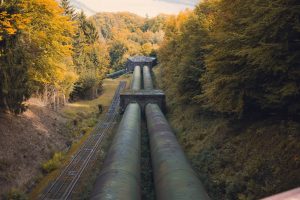Summit Carbon Solutions' Midwest Carbon Express pipeline and two other proposed pipeline projects by other companies – all three of which are intended to carry carbon dioxide for thousands of miles from ethanol plants to underground storage sites – are facing an uphill battle against landowners in the Midwest. And now, those landowners are getting help from veterans of the ongoing war on pipelines.
Some of America's most well-known anti-pipeline campaigners, including groups that fought the controversial Keystone XL and Dakota Access oil pipelines – like the environmental non-profit Sierra Club and the progressive group Bold Alliance – are working alongside local organizations to help landowners in five Midwest states, and they are using the lessons they learned in their past campaigns.
Groups like Dakota Resource Council in North Dakota, Dakota Rural Action in South Dakota, and Bold Nebraska – which is part of the Bold Alliance – are organizing landowners for collective legal representation in order to help them fight eminent domain claims (the power of the government to take private property for public use).
According to Jane Kleeb, Executive Director of Bold Nebraska and a founder of the Bold Alliance, the same strategy was used in Nebraska during the fight against Keystone XL.
Meanwhile, the companies behind the pipelines are attempting to convince landowners to voluntarily give them easements for their routes, but thus far they have struggled.
Summit said it has secured 48% of the easements it needs to run what would become the world's largest carbon capture pipeline nearly 2,000 miles (3,220 km) across Iowa and four other Midwest states. But for Summit to start construction in 2023 like it wants to, it will likely need the government to seize at least some of the rest through eminent domain law.
Summit and its fellow pipeline companies have claimed that because the new projects will not carry oil, they are not dangerous like the Keystone XL or Dakota Access pipelines. However, the anti-pipeline groups argue that they do indeed pose environmental risks, because captured carbon can be used to extend the life of oil fields (thus increasing the amount of fossil fuel that is ultimately burned), and because the long-term underground storage of carbon has yet to be proven safe and effective.
Many of the landowners, on the other hand, oppose the pipeline projects for different, more personal, reasons. Their concerns range from the potential damage inflicted on their farmland during construction to the health threats posed by pipe leaks.
The pipeline issue has managed to bring together two very unlikely allies: environmentalists who oppose carbon capture and the damage it could cause to the environment, and conservative rural landowners angry at the prospect that private companies could seize their land.
"Groups that fought [Keystone XL] are considered these radical environmental groups," said Chase Jensen, an organizer with Dakota Rural Action. "But once [landowners] get hit by their own pipeline, they understand."






















